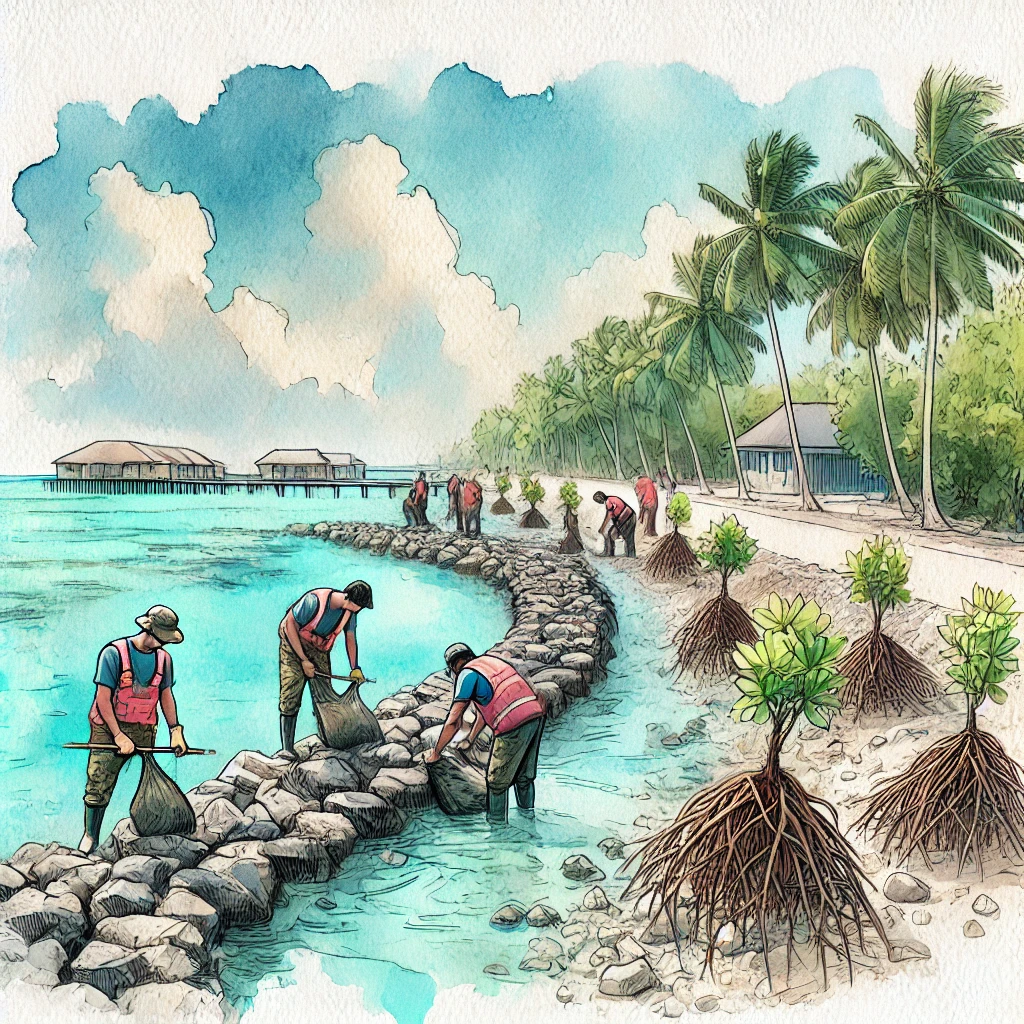The small nation’s citizenship program is an intriguing option for those seeking security, global mobility and sustainability opportunities.
When we talk about acquiring a second citizenship, Nauru often isn’t the first name that comes to mind. Yet, this small island nation offers a standout opportunity that sets it apart.
What makes Nauruan citizenship truly distinct is its emphasis on contributing to the island’s sustainable development. The program is a chance to be part of something bigger: helping a nation build resilience against climate challenges. The process also involves comprehensive due diligence, ensuring only those who align with these values can join the Nauruan community.
“By making a significant financial contribution (US$105,000 for a single applicant; $110,000 for a family up to four, for example), applicants not only gain citizenship but also support Nauru’s sustainable development initiatives. ”
In addition, Nauru’s geographical position in the South Pacific and its neutrality provide a safe haven in uncertain times. Families considering this opportunity can benefit from a passport offering visa-free travel to numerous destinations, enhancing their global reach with added security and flexibility.
The Geopolitical Significance of Nauru
Smallest Independent Republic
Nauru is known as the smallest independent republic in the world. This tiny island nation has a land area of just 8.1 square miles (21 square kilometers).
Because of its small size, Nauru faces challenges in terms of resources and infrastructure. As a result, international cooperation is key to its development. Nauru’s compactness also makes its governance model unique. Policy decisions can be efficient, and local engagement is high. This intimate setting fosters a strong sense of community and identity among its citizens.
Strategic Location in the South Pacific
Despite its diminutive size, the country has recently gained geopolitical significance through its diplomatic realignments. In January 2024, Nauru formally severed ties with Taiwan and established diplomatic relations with the People's Republic of China, a move that has attracted considerable regional attention.
This strategic shift reflects the complex geopolitical dynamics of the Pacific, where small nations can play an outsized role in diplomatic negotiations. Australia has responded by strengthening its bilateral relationship with Nauru, recently signing a deal that provides financial support while seeking to maintain strategic influence in the region.
Nauru’s location also means it has a role in environmental discussions, particularly those concerning ocean conservation and climate change in the Pacific region. As a result, Nauru remains an active participant in regional discussions that affect its future and the broader South Pacific.
Nauru Citizenship Program Overview
Citizenship by Investment
The Nauru Citizenship by Investment Program, officially known as the Nauru Economic and Climate Resilience Citizenship Program, is a gateway for individuals seeking global mobility and security. By making a significant financial contribution (US$105,000 for a single applicant; $110,000 for a family up to four, for example), applicants not only gain citizenship but also support Nauru’s sustainable development initiatives. The program is tailored for investors committed to ethical and impactful contributions, ensuring alignment with the nation’s values.
This program aims to boost Nauru’s sustainable development and climate change resilience efforts. By working with licensed agents, applicants undergo a thorough due diligence process, ensuring legitimate and ethical investments.
The program aligns with investment migration strategies, opening business opportunities in regions where Nauru has favorable agreements, making it a strategic choice for expanding global mobility and market access.
Family Members Inclusion
An appealing aspect of the Nauru Citizenship Program is the inclusion of family members. You can extend citizenship to your immediate family: spouses, children and sometimes even parents, under specific conditions.
This inclusion means your loved ones can enjoy the benefits of second citizenship, such as visa-free travel and better access to education and healthcare. The application process requires documentation for each family member, with considerations for their age and relationship to the applicant.
Oath of Allegiance and Certificate of Citizenship
The journey to citizenship culminates in the Oath of Allegiance, a key requirement for officially becoming a Nauruan citizen. It symbolizes the commitment to Nauru and its community.
Receiving the Certificate of Citizenship is the final step. This document is proof of your new status and grants you the rights and responsibilities of Nauruan citizenship.
Advantages of Nauruan Citizenship
Nauruan citizenship offers multiple perks that can be beneficial for global mobility, professional growth and economic opportunities. Let’s break down the key advantages.
Visa-Free Access and Global Mobility
Nauruan citizenship provides visa-free access to 89 countries. This means you can travel to places like Hong Kong and Singapore without the hassle of visas. This perk enhances your global mobility, allowing countless opportunities for business and leisure. Hassle-free travel not only saves time but also enhances your ability to make international connections quickly and efficiently.
Dual Citizenship and Second Passport Option
Holding Nauruan citizenship allows you the flexibility of dual citizenship. You can maintain your current citizenship while enjoying the benefits of an additional Nauruan passport. This second passport becomes an asset, offering a safety net in times of uncertainty.
Economic and Professional Opportunities of Nauruan Citizenship
Nauruan citizenship opens doors to new economic and professional opportunities. With the country’s focus on infrastructure development and renewable energy, there are business prospects for investors and professionals. Additionally, there are significant tax advantages designed to attract high-net-worth individuals and businesses. Being part of Nauru’s economic growth allows you to tap into emerging markets, creating room for potential ventures and collaborations.
Investing in Environmental Sustainability
In Nauru, we invest in environmental sustainability by focusing on renewable energy and preserving our natural surroundings. We aim to decrease dependence on fossil fuels that contribute to global warming.
Our approach also supports biodiversity. By implementing measures to protect local flora and fauna, we strive to preserve ecosystems that are crucial for maintaining climate balance. Efforts in climate finance aid this initiative by funding sustainability projects that work to protect our island’s fragile environment.
Addressing Climate Crisis Solutions
Facing the climate crisis, Nauru actively seeks out innovative solutions to mitigate environmental impacts. Developing climate resilience is essential for us as a Small Island Developing State (SIDS), as we are on the frontlines of climate change impacts such as rising sea levels.
To combat these issues, we engage in international collaborations, sharing resources and expertise with other SIDS. By aligning with global frameworks, we strengthen our climate resilience, helping ensure that our community is prepared to face challenges head-on.
Sustainable Development Projects
By investing in infrastructure that withstands the impacts of climate change, we hope to achieve economic growth while protecting the environment. Our projects often include environmental preservation initiatives to safeguard the island against erosion and other climate-related threats. This dual focus on sustainability and development is designed to help Nauru thrive despite environmental challenges.
Rigorous Due Diligence Procedures
Our due diligence process is designed to be as thorough as possible. Each applicant goes through a series of checks to confirm their personal and professional history. These checks include background investigations.
We assess applicants for any potential risks. Whether it’s financial stability, previous legal issues or any governance concerns, we leave no stone unturned. These rigorous procedures ensure that our applicants align with both our values and national security interests.
Becoming a Citizen of Nauru
Nauru’s citizenship program is a rare blend of global mobility, ethical investment and a commitment to sustainability. By choosing this path, investors gain more than a passport; they contribute to a resilient future for a nation facing climate challenges. –Andrew Williams








































